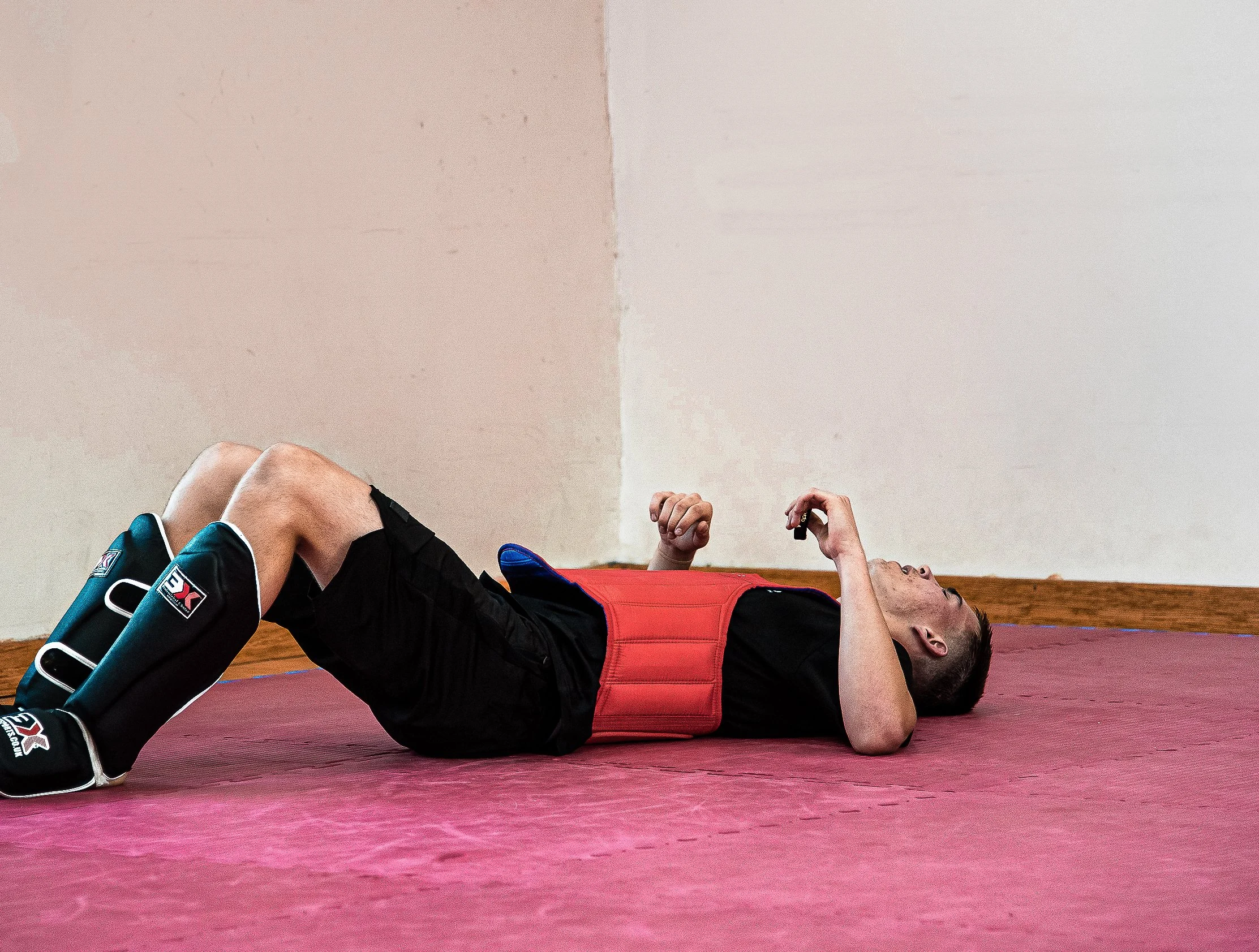The Importance of Resting After a Competition
Pushing hard in training requires proper recovery protocols
How we did in this Years Nationals
We had three athletes compete in the 2025 National Sanda Championships and we walked away with two gold medals and one silver. A roaring success and a proud moment for the whole team.
Preparing for any competition is physically, mentally, and emotionally demanding. Getting fight-ready requires athletes to commit fully mind, body, and soul and to peak at exactly the right time. This intense training process takes a serious toll on the body, which is why proper rest and recovery after competition is essential.
In this article, we’ll explore why rest isn't just a break it’s a vital part of the performance cycle, helping athletes return to training fresh, focused, and ready for the next challenge.
The Demands of High-Level Competition
The Sanda Nationals are the biggest event of the year on the UK Sanda circuit, demanding months of intense preparation and unwavering commitment. All of our athletes pushed themselves to their physical and mental limits and the results spoke for themselves.
However, this level of intensity comes at a cost. Constant high-level training and competition can take a serious toll on the body and mind, and if not properly managed, can actually hinder long-term progress. That’s why taking a break after a major event isn’t a luxury, it’s a necessity. Rest allows athletes to recharge, recover, and return to training refreshed and ready to keep moving forward.
Why Rest Matters
After the adrenaline of competition wears off, it’s tempting to jump straight back into training but real progress depends on how well we recover. Rest isn’t about slacking off; it’s about giving the body and mind the chance to reset so that athletes can train harder, smarter, and for longer in the long run. Here’s why rest is absolutely essential after a big event:
Physical Recovery
Fight camps are physically intense and can leave the body and the nervous system completely depleted. After weeks of training in a heightened “fight or flight” state, rest allows the body to down-regulate, repair, and return to a balanced state. Only once the body has truly recovered can athletes begin to rebuild strength and conditioning effectively.
Mental Recovery
We often compare competition prep to cramming for an exam or working flat out on a high-stakes project and the mental fatigue is just as real. Rest helps prevent burnout, restores motivation, and gives athletes the mental clarity to reflect, reset, and return with renewed focus and drive.
Injury Prevention and Recovery
Sanda is a physically demanding sport, and injuries are an unfortunate part of the game. Some athletes may carry minor knocks from their fights, while others may be dealing with more serious issues that require weeks of recovery. Taking time off after a competition allows injuries to heal properly and helps reduce the risk of overtraining, which can lead to longer-term setbacks.
What Does Rest Actually Mean?
Recovery is one of the simplest and most effective ways an athlete can improve their performance, yet it’s often the most overlooked. Recovery is about doing less and reducing stress, but many athletes struggle with this because they feel they must always be doing more. In reality, the greatest adaptations happen when the body has time to rest.
True recovery can be as simple as sitting down and watching TV, spending time with friends and family, or engaging in other relaxing activities. There’s a common myth that recovery requires doing more, like using a sauna or red light therapy, but these aren’t the key. The real secret is allowing yourself to be still, to be “lazy” in a deliberate way, even though this goes against the natural drive of most athletes.
Knowing when to stop
Knowing when to stop training should be based on a combination of objective and subjective measurements.
Objective measures include tools like HRV (heart rate variability) tracking or monitoring grip strength over time. These provide data that can signal when the body may need a break.
Subjective measures involve assessing the athlete’s mental state for example, noticing signs of mental fatigue and adjusting training or taking a rest day based on how the athlete feels.
By combining both objective data and subjective feedback, athletes can better structure their training and rest days for optimal performance and recovery.
Setting a Positive Culture Around Rest
At Sanda Kickboxing Academy, we believe in training smarter, not just harder. The “push through no matter what” mentality is not the most effective approach. By combining both subjective and objective measurements, we can identify when an athlete needs a break, reducing the risk of injury, illness, and overtraining. This approach increases the likelihood of our athletes performing at their best when it matters most in competition.
Final Thoughts
We want to once again congratulate our team on their success at this year’s Nationals, and encourage both them and you, dear readers, to look after your body and mind so you can enjoy Sanda Kickboxing for a lifetime.
Start your journey with us today! Join one of our beginner-friendly kickboxing classes and discover the art of throws and striking.


